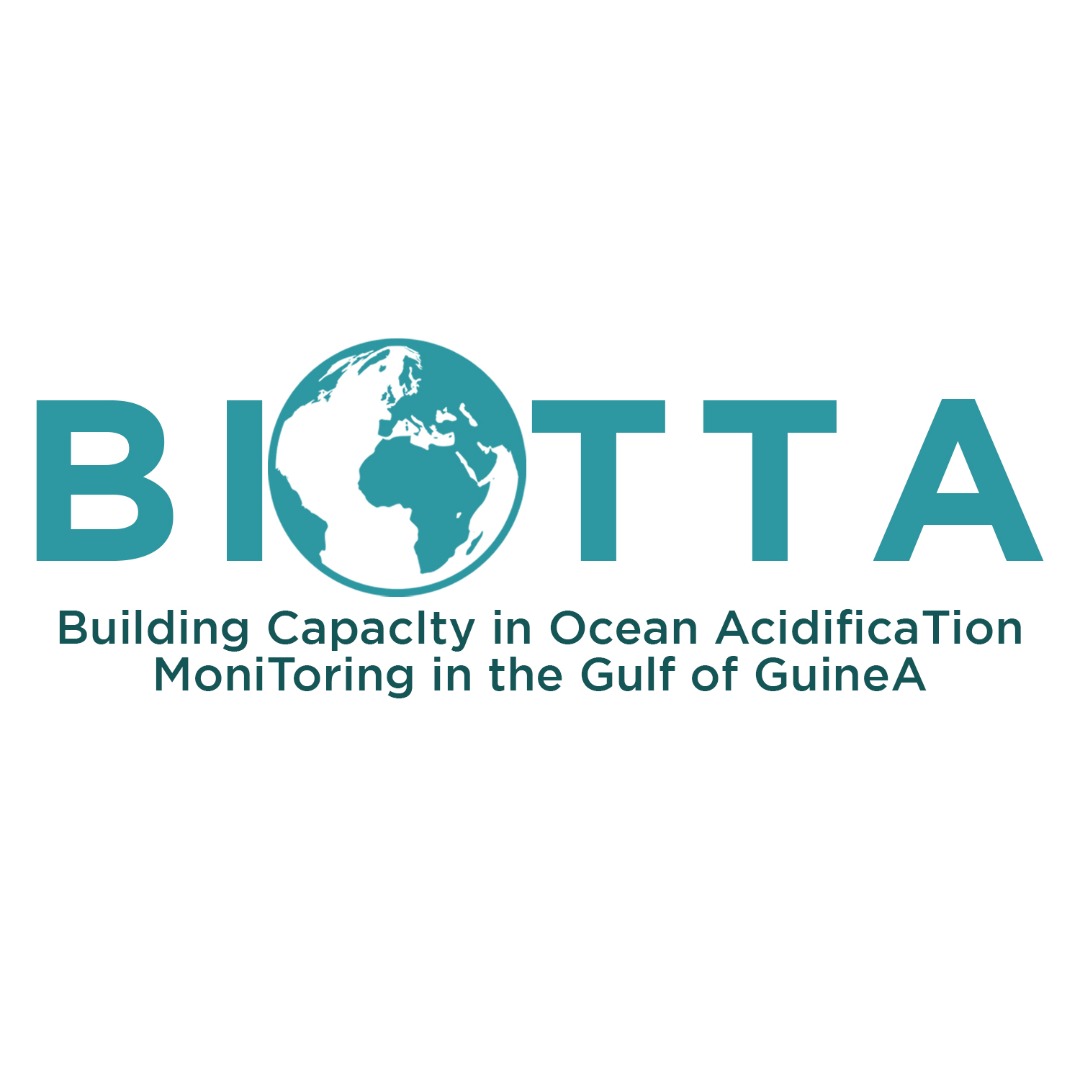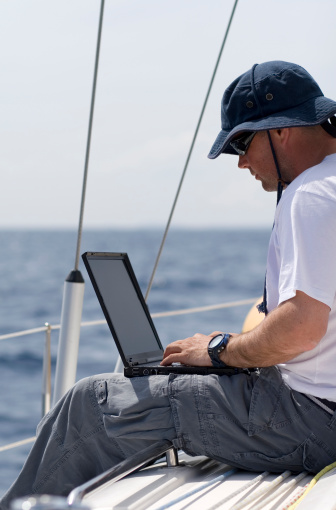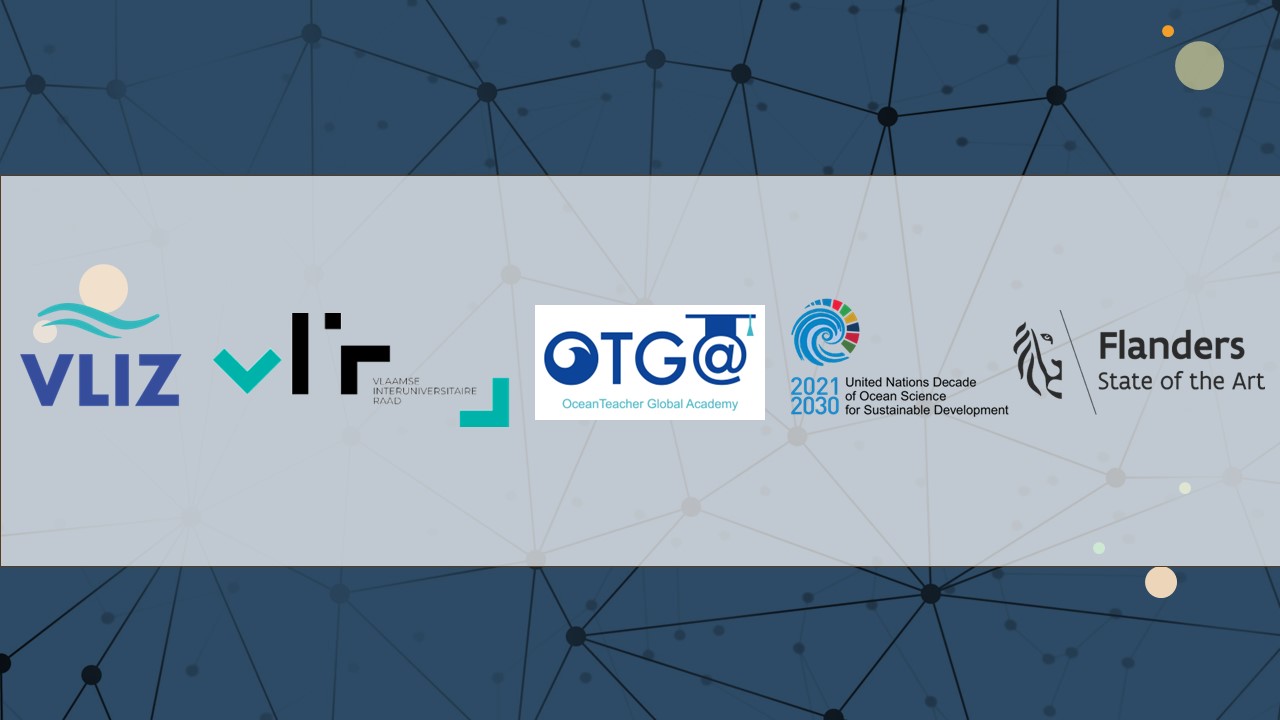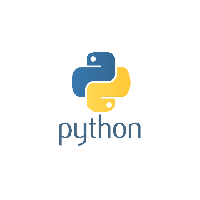languageEnglish
Courses tagged with "language::english"

OFS2024
Online Training on Ocean Forecast System
The Ocean model represents a numerical mathematical equation of the ocean and its interaction with the atmosphere and land. The ocean model in the Maritime Continent aims to capture the complex interaction between ocean and atmosphere in this region, therefore configuring an ocean model for a certain area needs to specify a specific domain, type of the equation and numerical methods used, the parameterization of sub grid-scale processes and forcing data used to drive the model, such as atmospheric data and boundary condition.
One of the most commonly used ocean models is the three-dimensional numerical model, which divides the ocean into a grid of cells and uses mathematical equations to simulate the physical processes within each cell. The model is initialized by ocean currents, temperature, salinity data, and other variables, and run over some time, typically several years, to simulate the evolution of the ocean under different conditions.
Among those models that existed, BMKG developed the BMKG Ocean Forecast System (BMKG-OFS) as one of the Meteo-Oceanography modelling systems used to support prediction and information about waves, ocean currents, salinity and sea temperature for the communities. The development of BMKG OFS is an attempt to fulfil community needs in various sectors such as sea transportation, fisheries, mining and energy, and marine-related activities.
BMKG OFS consists of 3 primary components: the Ocean Wave Model, Ocean Circulation Model, and Drifting model. The Ocean Wave Model named Ina-Waves is used to support sea wave information. The Ocean Circulation Model named Ina-Flows, is used to support current, salinity and sea temperature information at every depth. The drifting model is used to support object trajectory, sea level and coastal flood information.
This training will provide participants with a basic knowledge of ocean modelling in terms of marine warnings and forecasts. The way that the ocean numerical modelling system developed by BMKG supports operational analysis and forecast of ocean parameters (waves, ocean currents, sea temperature, salinity, and seawater level) will be also discussed. The processing and visualization of met-ocean data set from BMKG-OFS using open-source applications will be discussed briefly as supporting tools for data observation in the provision of marine meteorology services.
Learning outcomes:
- Understanding the basic concept of Ocean Observation Systems in the Maritime Continent
- Understanding the numerical ocean model and its configuration
- Understanding the ocean model configuration utilization
- Understanding visualization and utilization of ocean forecast system model
Course content:
- Introduction Lesson :
- Overview of Online Training on OFS
- Building Learning Commitment
- Lesson 1: The Concept of the Ocean Observation System in Maritime Continent
- Lesson 2: Numerical Ocean Model and the Configuration for Marine Forecast and Warning
- Lesson 3: Ocean Model Configuration
- Lesson 4: Visualization and Utilization of Ocean Forecast System Model
Target audience:
- Meteorologists
- Oceanographers
- Researchers
- Marine Data Analysts
- Marine Forecasters
Language of instruction: English
Instructors/Trainers:
Email: ahmad.fadlan@stmkg.ac.if
Specialization: Meteorologist, Marine Weather Observer and Analyst
Email: madona@bmkg.go.id
Specialization: Seismology
Email: khafid.pratama@bmkg.go.id
Specialization: Ocean Modeling, Physical Oceanography, Coastal Dynamic
Rafika Eka
Email: rantifa.agustira@bmkg.go.id
Specialization: Marine Meteorology, Ocean Numerical Model
Course duration and format:
25 hours (online) over a one-week period.
The course consists of the following formats but is not limited to:
- Lectures :
- Asynchronous sessions (using recording and tutorial video, reading, discussion forum)
- Synchronous sessions (webinar using Zoom Meeting Application, including breakout room activities for group activities)
- Discussion (synchronous and asynchronous via forum)
- Practice Exercises
- Case studies
- Manuals and Tutorials
- Games and Quizzes
- Demonstrations
- Project presentations
- Coaching
Learning assessment:
- Pre-Test and Post-Test: These tests are conducted before and after the training to assess the knowledge and skills gained by participants during the program.
- Quizzes: This encourages participants to review and solidify their understanding of the material.
- Learning journal: It is a reflective tool that allows participants to record their thoughts, experiences, and insights from the day’s learning activities. The tool encourages deeper understanding by prompting participants to think critically about their learning.
Pre-requisites:
- Good working knowledge of English
- Familiar with basic oceanographic
- Beginners will be given prioritized in this course
Certificate: Certificate will be issued for participants who ● Certificates will be issued for participants who attempt the pre-test and post-test quizzes and submit the learning journals. At the conclusion of the course, you will be asked to complete the post-course feedback survey to rate how the course has met your expectations.
Cancellation policy:
In the event of cancellation of the course by the OTGA or its affiliates, we will provide notification of cancellation at least 7 days prior to the course date. In the event of cancellation by the attendee, we should receive notification of cancellation at least 7 days prior to the course date.

ECOPOceanTech-2024
Introduction to Oceanographic Survey Techniques and Data Management
Summary
Global change requires studying the ocean in more detail and at longer and larger scales. Capacity development and training on standard survey techniques and the use of simple sensors has been identified as a tool to enhance ocean observation. This course serves as an introduction to oceanographic survey techniques and data processing. It is designed for Early Career Ocean Professionals (ECOPs), students, and other oceanographers who intend to pursue oceanography and marine sciences. Relevant oceanographic (physical, chemical, and biological) datasets will collected and used during the training, making it easy to relate, understand, and apply the course concept.
Venue: AquaBioTech Group, Mosta, Malta
Learning outcomes
By the end of the course, the learners are expected to:
- Be familiar with oceanographic survey techniques.
- Understand how to use simple data collection tools and sensors.
- Be familiar with measurement of temperature, salinity, turbidity, depth oxygen and chlorophyll.
- Produce meaningful descriptive statistics and informative graphs from raw data.
- Results interpretation and discussion for scientific communication and writing.
Course contents
The course will be divided into 4 modules:
Module 1: Field sampling techniques for basic coastal oceanographic parameters
- Introduction to oceanographic parameters temperature, salinity, turbidity, depth oxygen and chlorophyll.
- Preparing a field work checklist,
- Safety measures during field work
- Calibration, and deploying of sensors and equipment
- Field surveys
Module 2: Data visualization and management
- Data retrieval
- Data entry
- Data visualization in R software using ggplot package
- Simple analysis using R
- Data management: storage, sharing and repository
Module 3: Basics of scientific writing
- Language and structure
- Graphics and visuals
- Citation and referencing
- Plagiarism
Module 4: Basics of science communication and outreach
- Language and sentence structure in science communication
- PowerPoint Presentation
- Visuals for infographics
- Policy briefs
Target audience
ECOPs who are enrolled in a Bachelor’s or Master’s degree, or have completed their Masters Degree and intend to use this knowledge in their academic or research related work. No prior R knowledge will be required, but knowledge on basics of oceanography is desired. The current course is specifically targeting ECOPs from and/or based in the Mediterranean region (from Southern Europe, Northern Africa and Western Middle East).
Language of instruction: English
Moderators and Instructors
Ines Boujmil – Aqua Biotech Group
Dr. Anabel von Jackwoski - Stockholm University
Mr. Gabriel Akoko Juma – Alfred Wegener Institute, Germany
Organizers
This course is being organized with the support of the Early Career Ocean Professionals Programme, Alfred Wegener Institute, Helmholtz Centre for Polar and Marine Research, Stockholm University, Aqua Biotech Group, International Ocean Institute, Jean Monnet Centre of Excellence on Sustainable Blue Economy and UNESCO-IOC Ocean Teacher Global Academy.
Details: https://oceanexpert.org/event/4367

MMCE2024
Management and mitigation of coastal erosion 2024
Summary
Course description:
The coastal erosion problem affects several regions worldwide. The causes of this problem are sites specific and not always understood. In this way, understanding the possible mitigation measures for this problem and the impact that each coastal intervention strategy can represent on the shoreline evolution allows for a more informed action by the decision-makers and competent entities.
Learning outcomes:
Participants should become aware of the complexity of the coastal processes, possible coastal intervention measures and their positive and negative impacts, and existing tools/numerical models to help planners and decision-makers.
Course content:
- Coastal erosion causes and mitigation measures
- Mapping the risk of coastal erosion
- Costs and benefits of coastal defense interventions
- Policies, monitoring and artificial nourishments measures
- Case Study: numerical modeling.
Target audience:
Public officials, planners, civil protection, project engineers, researchers and anyone interested in the impact of different coastal defense measures on the long-term shoreline evolution. No prerequisite is required, but knowledge in coastal engineering aspects are an advantage.
Language of instruction:
English
Instructors:
Details: https://oceanexpert.org/event/4447 ;

TsunamiReady2024
UNESCO-IOC Tsunami Ready
The purpose of this course is to introduce the concept, process and indicators of the UNESCO-IOC Tsunami Ready Recognition Programme.

OLSSchool*Tremiti2024
Save the Wave: Summer School on Ocean Literacy and Ecosystem Restoration

QGIS_India2024
Coastal Vulnerability Mapping and Analysis using QGIS 2024

OCRS_India2024
Ocean Colour Remote Sensing - Data, Processing and Analysis 2024
Ocean colour analysis is a proven tool for determining the health of
ocean using oceanic biological activity through optical means. Phytoplankton
pigment, chlorophyll, are indicators of equilibrium of CO2
concentration between atmosphere and ocean. The oceanic colour changes due to chlorophyll
a provides the level of primary productivity whereas the colour change due to
CDOM can be attributed to the level of pollution and higher particulate matter.
The ability of optical sensors to map the spatial and temporal patterns of
ocean colour over regional and global scales has provided important insights
into the fundamental bio-optical properties and bio-physical processes
occurring in the aquatic media. Chlorophyll, SST and PAR can be operationally
scaled up to estimate primary production and estimate the fish stocks. This
training focuses on the basics of marine optics, ocean colour remote sensing,
and its applications such as mapping primary productivity, phytoplankton
classes and algal blooms.
Find all details about this course in: https://oceanexpert.org/event/4299 ;
Attendance to this course is by application only. Access will be granted to the selected participants.

ERASMUSMARIS-24
Erasmus Maris Week 2024 - Program on Microplastic Monitoring in Aquatic Environment
This course is part of the Erasmus Maris initiative which overall goal is to engage secondary schools in key phases of marine science studies, through a dynamic blend of formal and non-formal learning. The current spotlight is on the critical issue of microplastic pollution in aquatic environments. The goal is to place schools at the forefront of this pressing research, contributing to real-world solutions.
The Erasmus Maris week is an immersive educational experience focusing on microplastics pollution. The course involves various activities such as nautical exercises for team building, sampling microplastics onboard sailboats, analysis of environmental samples, and workshops. There is be a strong emphasis on teamwork, collaboration, and hands-on learning. It also includes a "train the trainers" session for the teachers.
Cross-communication:
Teachers and students from different countries spend a week immersed in a nautical environment, exploring marine science concepts through engaging activities like kayaking, SUP, and sailing.
Just as scientists share findings through conferences and journals, the Erasmus Maris week fosters a similar environment among participating schools. Schools share their experiences, insights, and challenges, creating a dynamic community of learners. Expert scientists are invited to these sessions for invaluable feedback.
All activities are supervised by seasoned professionals, ensuring a safe and enriching experience.
Onshore facilities, including classrooms, labs, and waterfront areas, support offshore activities for instruction, experimentation, and data analysis
This integration allows students to approach marine science from diverse angles. This also promote collaboration among students, educators, and scientists, fostering a collaborative learning environment that encourages critical thinking, problem-solving, and teamwork.
Sailing
The sailboat has a strong power of attraction over youth because it conveys an ecological message and produces a feeling of freedom and adventure. The practice of sailing helps developing values such as rigour and team spirit and provides practical learning of multidisciplinary skills. Besides, the marine environment around the sailboat is an open laboratory for studying life sciences.
More information: https://www.erasmusmaris.eu/erasmus-maris-week-2024.html
Learning outcomes:
A. Knowledge:
- Recall key terms related to microplastic pollution.
- Identify the main environmental impacts of microplastics.
- Identify different types of microplastics commonly found in aquatic
environments
- List the different abiotic factors relevant to marine ecosystems.
B. Comprehension:
- Describe the importance of microplastics analysis in environmental research.
C. Applying:
- Collaborate with other pupils to apply sampling protocol to collect microplastic samples in different aquatic environments.
- Use scientific equipment to measure abiotic factors in marine ecosystems.
- Apply Erasmus Maris protocol for the analysis of environmental samples.
D. Analysis:
- Interpret data collected during the Erasmus Maris week and compare microplastic concentrations between rivers and seas and/or between different samples.
E. Synthesis and evaluation
- Assess the environmental impact of microplastic pollution based on the data collected.
Registration
Participation in this course is closed to representatives from the ten schools participating in the Erasmus Maris program, spread across six different countries in Europe. Each school chose 6 students to participate in the training, accompanied by their respective teachers.

SATData2024
Training on the Implementation of Satellite Altimetry Data for Operational Metocean Services
The training course will focus on utilizing satellite
technology to provide accurate wave height and sea surface height information
to support marine operations. Several types of
satellite altimetry data will be explored. By the utilization of satellite
altimetry data, forecasted wave height output from Numerical Weather Prediction
(NWP) will be verified. The course will also examine the usage of
various satellite observations to monitor significant
wave height, sea surface height, and sea level rise. Throughout the course,
trainees will have the opportunity to develop their skills in satellite data
processing, interpretation, analysis, and visualization.

OA2024-BIOTTA
Ocean Acidification - BIOTTA
Ocean acidification (OA) is a global environmental issue caused by the continuing release of carbon dioxide into the atmosphere. This course covers the causes of ocean acidification, associated chemical changes, its effects on marine organisms and the global ocean, how to measure ocean acidification, how to plan appropriate observations in the field and experiments in the laboratory, and the political response to the threat of ocean acidification on the global, regional and local scale.
This course may be completed online remotely or online at the University of Ghana OTGA RTC. It is organized by the leads of the Building CapacIty in Ocean AcidificaTion MoniToring in the Gulf of GuineA (BIOTTA) project at the University of Ghana with the support of The Ocean Foundation and the IOC Ocean Science Section. The course content has been made available by the IOC Ocean Science Section and ocean acidification experts. This course is envisioned to provide baseline ocean acidification knowledge to multiple levels of researchers and students at institutions that will be receiving GOA-ON in a Box kits to conduct ocean acidification monitoring in 2024.

BlueCarbon_China2024
Observation technique about blue carbon
This training course will focus on raising the knowledge on the monitoring, assessment, and accounting of marine blue carbon. And also the related instrumentation and calibration of some biogeochemical parameters are the main content of the training course. The course will use case studies relevant for the Western Pacific.
Learning outcomes
By the end of the course, the participants should:
- Have a comprehensive understanding of the monitoring and assessment of coastal blue carbon.
- Be able to explain the role of connotation, Classification, and Accounting of Marine Carbon Sequestration.
- Be familiar with the instrumentation and calibration of some biogeochemical parameters.
Target audience and prerequisites
Include, but are not limited to, the following researchers and management staff on marine ecological observation, who deal with biogeochemical parameter measurements and instrumentation.
Language of instruction: English
Course content
Day 1 The monitoring and assessment of coastal blue carbon
Day 2 Connotation, Classification, and Accounting of Marine Carbon Sequestration
Day 3-5 Instrumentation and calibration of some biogeochemical parameters (dissolved oxygen and pH in seawater for example)
- utilization and maintenance of dissolved oxygen and pH instruments/sensors
- calibration of dissolved oxygen and pH sensors for seawater use in a lab
- calibration method of multi-parameter compensation for optical dissolved oxygen sensor in seawater
Instructors
Learner assessment and certificate
Assessment will be done through (online) quizzes.
Successful completion of the assignments (passmark: 80%) and active attendance of all of the synchronous sessions will be needed to be awarded a certificate of completion
Technology requirements
To complete this course, you should have access to:
- Latest version of either Chrome, Edge, or Firefox, web browsers
- Access to internet
- Firewalls must be disabled in order to be able to attend the synchronous live sessions
Course Duration, Synchronous Sessions, and Format
The course will take place online between November 25 to 29, 2024, with a duration of approximately 20 hours.
This is a 20-hour training course that will run online between 25-29 Nov 2024, including 3 (daily) synchronous sessions to be held between 13-16 pm (UTC+8) using BigBlueButton web conferencing platform.
The course includes 15 hours of synchronous work (content and discussion) plus 5 hours of individual asynchronous work for completion of assessments.
Application process and selection criteria
A limited number of seats (45) are available. Please complete the online application form available on this LINK. The applications start 01 October 2024. The deadline to submit the application is 31 October 2024 (23:59 CET: Central European Time).
UNESCO is committed to promoting equal access principles. Applications from minority or underrepresented groups are strongly encouraged.
The Selecting Committee will be set up by the hosts (NCOSM and NMDIS), which will comprise the course coordinator, organizers, and lecturers. Selection criteria include the applicant’s academic background, professional experience/duties (such as marine observation, blue carbon and ecosystem data management), and how the applicant will be able to apply the new knowledge acquired. Priority will be given to participants from the West Pacific
Contacts
- Course Coordinators: YU Jianqing yujianqing@ncosm.org.cn; Xu Dian ncosmws@ncosm.org.cn
- OTGA Secretariat: ioc.training@unesco.org
Costs
Free of charge. There are no tuition fees.
The instructors will give the course voluntarily with support from NCOSM.
Cancellation policy
In the event of cancellation of the course by the OTGA or its affiliates, we will provide notification of cancellation at least 7 days prior to the course date. In the event of cancellation by the attendee, we should receive notification of cancellation at least 7 days prior to the course date.

APC13
13th Advanced Phytoplankton Course- Identification, Taxonomy, Systematics
The Advanced Phytoplankton Course series (APC) was initiated in the 1970s at the University of Oslo with the support of UNESCO and its Intergovernmental Oceanographic Commission (IOC). Subsequent Courses were held from 1985 to 2015 at the Stazione Zoologica Anton Dohrn (SZN), in 2012 at the University of Copenhagen and in 2019 at the Station Biologique de Roscoff (SBR). Over the last four decades, APC has contributed to the dissemination of the vast and ever-expanding body of knowledge on phytoplankton taxonomy, which has recently gained renewed interest because of its importance for interpreting advanced high-throughput imaging and molecular data. Many of the current experts in marine phytoplankton research have been trained at previous APC editions.
The 13th Advanced Phytoplankton Course (APC13) is organized by SZN together with SBR, the IOC Science and Communication Centre on Harmful Algae (IOC UNESCO / SCCHA) and Ocean Teacher Global Academy (IOC UNESCO / OTGA).
INFORMATION: https://oceanexpert.org/event/4021

SP_ODM2024
Ocean Data Management 2024
This online, fully self-paced training course provides a comprehensive introduction to the management of marine data, including the guiding principles of data management and typical responsibilities for data managers, data stewards and scientists.
This course is developed by, and for, marine data managers, data stewards and researchers, working in institutions responsible for the collection and good management of marine data.
During this training course, you will be introduced to several general aspects related to the management of marine data, including, metadata, quality control, data policy, data sharing and publishing, data management plans and the research data life cycle. By the end of this course, you will be able to describe and implement the core tasks required for the processing of marine data, explain the importance of metadata, advise researchers on the research data life cycle and explain why a good data management plan is key from the very first initiation steps of a project.
Learning outcomes
By the end of this training, participants should be able to:
- Describe the phases of the Research Data Life Cycle
- Explain the concept of a Data Management Plan
- Explain the concept and importance of metadata
- identify suitable file formats for data preservation and sharing
- Identify appropriate repositories for your data
- Summarise the goal of assigning a data licence
- Explain the common concerns related to data reuse
Target audience
Marine data managers, data stewards and researchers, working in institutions responsible for the collection and good management of marine data.
This is a self-taught course that includes quizzes designed to help learners assess their own learning at regular intervals.Learner Assessment
This is a self-taught course that includes quizzes designed to help learners assess their own learning at regular intervals. In order to successfully complete the course and award a Certificate at the end, the following is mandatory:
- complete all lessons in each Module of the course;
- complete all quizzes (70% minimum score for each quiz);
Note: submitting the course feedback survey is mandatory to obtain the course certificate.
Technology requirements
To complete this course, participants should have access to:
- Computer with Windows or Mac operating system
- Latest version of either Chrome, Edge, Firefox, or Safari web browsers
How to enroll
Please register on the OceanExpert website (www.oceanexpert.org). Once your OceanExpert account is approved (this is not done immediately), you can self-enrol in the course. If you already have an OceanExpert account, you can self-enrol in the course using your OceanExpert username and password. Enrolment is available until 1 December 2024.
First log-in OceanTeacher, then access the course page and click on self-enrollment.
The enrolment key is Odm2024-2
For any questions please contact the OTGA Secretariat (ioc.training@unesco.org) always using the name of the course as email subject.
There are no tuition fees.
UNESCO is committed to promote equal access principles. Applications from minority or underrepresented groups are strongly encouraged.
Feedback survey
At the end of the course, you will be asked to fill out a feedback survey. This information will be used to improve future courses.
SP_OD-Codesign
Co-design for the Ocean Decade

Welcome to the IOC-UNESCO Co-design for the Ocean Decade course, a meticulously structured programme spanning six modules, each dedicated to unfolding the intricacies of co-design in the realm of sustainable ocean development. From a foundational introduction to the nuanced exploration of joint vision setting, stakeholder engagement, partnership cultivation, and sustainability strategies, this course delves deep into the principles and practices pivotal for co-design's success within the Ocean Decade's framework. Enriched with expert insights, quizzes, and diverse learning materials, it aims to equip participants with the knowledge, skills, and collaborative ethos necessary to contribute effectively to the Ocean Decade's ambitious goals, fostering a community of learners poised to drive meaningful change in ocean science and policy.
The experts participating in this series of virtual event recognized that those involved in transdisciplinary research require different skills and knowledge to skilfully carry out each of the stages (co-design, co-production and co-delivery) of transdisciplinary research. Experts’ recommendations include amongst others developing training courses on transdisciplinary research and facilitating their integration into undergraduate and postgraduate curricula. Additionally, building the scientific capacity of the next generation of researchers and professionals (early-career ocean professionals, ECOPs) to develop the right set of skills and manoeuvrer the tools and methods specific to transdisciplinary research, was also encouraged by the group of experts.
Learning goals- Understand co-design Concepts (Understanding)
- Analyze the objectives and strategies outlined in the Ocean Decade's implementation plan (Analysing)
- Apply the learned co-design steps to develop a conceptual Decade Action Project idea (Applying)
- Develop Joint Vision and Objectives for co-design Projects (Creating)
- Identify and Map Relevant Stakeholders (Analysing)
- Formulate Stakeholder Engagement Strategies (Creating)
- Design an Equal Partnership Plan (Creating)
- Develop a Sustainability and Impact Monitoring Plan (Creating, Evaluating)
Course format
This is a self-paced
course. The estimated time required
to complete this course is 18 hours total, with a suggested strategy of
approximately 3 hours of dedication per week depending on individual
progress.
To enroll, please register on the OceanExpert website (www.oceanexpert.org).
Once your OceanExpert account is Approved, you can self-enrol in the
course. If you already have an OceanExpert account, you can self-enrol
in the course using your OceanExpert username and password. Course starts on 27 May 2024.
The enrolment key is Codesign24
Any specific questions about this course please contact: the OTGA secretariat (ioc.training@unesco.org) always using the name of the course as email subject.

MSPglobal2024EN
MSPglobal Online Training Course (ENGLISH)
This course covers a wide range of topics related to marine/maritime spatial planning (MSP), including the connections with integrated ocean governance approaches, the process for developing a marine spatial plan, and how to use a marine spatial plan at the global, regional, and local levels. It will explore the definition and elements of an effective MSP from a theoretical perspective and further present how these theoretical approaches are delivered through the MSP process.
The learning resources explain the importance of marine spatial planning (MSP) and the activities aim to increase understanding about how to develop a marine spatial plan, how to use this plan for better decision-making, the importance of setting the scene for plan development, how to conduct inclusive stakeholder engagement, gender considerations, transboundary aspects, and robust data evidence. The course also has case studies from around the world exploring different approaches to MSP development and uses of marine spatial plans.
QMF2024




